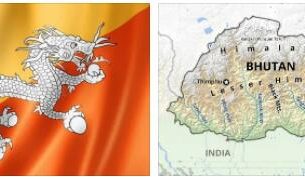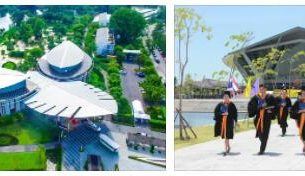The handing over to British justice of the two Libyan citizens accused of the plane crash caused in the skies of Lockerbie (Scotland, December 1988) marked, in 1999, a significant change of direction in the foreign policy of President M. Gaddafi (al-Qaḏḏafī). On April 16, the UN suspended the embargo imposed on Libya in 1992. At the end of 1999 Gaddafi agreed to pay compensation to the family of Y. Fletcher, a British policewoman killed in 1984 in London, admitting Libya’s full responsibility in the murder; thus a way was opened for the normalization of diplomatic relations between Libya and the United Kingdom. However, the sanctions applied unilaterally by the United States remained in force.
In the same year Gaddafi turned his back on the Arab League, which proved unable, according to the Libyan leader, to provide clear answers on the Palestinian question and the Iraqi crisis. Instead, he directed his interest towards Africa, becoming the promoter of an ambitious project of African unity. In the extraordinary assembly of the OAU (Organization of African Unity) in Sirte, in Libya, Gaddafi hoped for a strengthening of the organization – which on his initiative was re-named (but officially only in 2002) African Union (AU, African Union) -, the establishment of a pan-African parliament and court of justice and the African monetary union. The project, which also aimed to counter the growing influence exerted by Western powers on the continent, met with great acceptance in some African states, but a much more moderate enthusiasm in others (in particular, the Republic of South Africa).
A collateral effect of this opening towards sub-Saharan Africa (which Libya gave concrete feedback, even in subsequent years, with humanitarian aid, trade agreements and military support) was, however, a notable increase in the presence in Libya of immigrants from Niger, Nigeria, Chad, Sudan and Ghana. Growing tensions with the local population ensued which resulted (Sept. 2000) in a series of clashes throughout the country (the most serious those occurred in al-Zawiya, west of Tripoli); over 100 immigrants lost their lives, while about 30,000 were expatriated in October.
In the early 21st century. Libya was clearly oriented towards change also in internal politics. In 2000 Gaddafi launched a reform program that aimed at a radical decentralization of government functions. The financial scandals that, in 2000 – 01, also saw high representatives of the government and the Central Bank of Libya implicated, testified, however, to the widespread corruption that afflicted the country. The Libyan leader continued his reformist policy also in the following years, promoting a greater opening of the Libyan market to foreign investments and the privatization of both the oil and banking sectors; in September 2003 entrusted the post of prime minister to an economic expert, š. ġanem.
In 2003, Libya’s relations with the international community reached a turning point when the president assumed responsibility for the Lockerbie plane crash and declared that he agreed to take charge of the compensation of the victims’ families, to undertake to cooperate with any further investigating the case and offering full cooperation in the ‘war on terror’; in September the UN definitively lifted the embargo. Also in 2003, especially thanks to the support of the African states with which it had strengthened its alliance, Libya was elected (with 33 votes out of 53) to chair the UN Commission for Human Rights; the choice was contested by various international organizations engaged in the defense of human rights, which have always been critical of the lack of respect for freedom and civil rights in the North African country. For Libya 2003, please check computerannals.com.
In Oct 2003 the United States accused Libya of having increased purchases of components for biological and chemical weapons by announcing the inclusion of the country in the list of constituent states of the ‘axis of evil’ (with Irān, Irāq and Korea of the North); The United States and the United Kingdom also denounced the existence of a nuclear weapons program at an advanced stage of implementation. Disappointing his accusers, Gaddafi joined the Chemical Weapons Convention and signed an additional protocol authorizing inspections by the International Atomic Energy Agency (IAEA).), which produced evidence of Libyan nuclear projects, albeit at an early stage. Libya later agreed to a request to have US and British officers carry out the task of destroying and removing the nuclear material. In June 2004 the export of oil from Libya to the United States began again, which, in December of the same year, officially suspended the unilateral sanctions. The positive impact was also immediate on diplomatic and economic relations with Europe; the first European head of government to visit Libya was the Spaniard JM Aznár (Sept. 2003), followed by S. Berlusconi (Feb. 2004)) and by T. Blair (March). Further progress in the country’s international rehabilitation was marked by the agreement with France (Jan. 2004), under which Gaddafi agreed to compensate the families of the victims of the UTA airline bombing in Niger (1989, 171 dead). In May 2006 the US administration announced its intention to restore full diplomatic relations with Libya, which, indicated as a model of excellent cooperation in the ‘war on terror’, was removed from the list of countries of the ‘axis of evil’.



